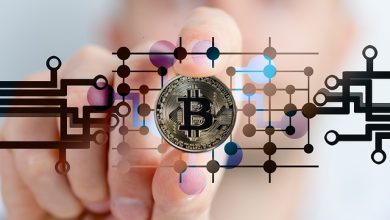What are Some Practical Privacy Tips for Remote Workers in 2021?

Who knew that the corporate world that did not believe in remote working would send its employees home?
Well, the global pandemic did that to everyone. Covid-19 did not just turn our lives, but the entire way of working upside down. However, the change brought some new possibilities.
It allowed workers to stay at home that willed for it for a long time. Let’s not forget, it also employed multiple people who had been willing to work all their lives remotely.
But, work from home also got corporate industries concerned about the evolving attacks on their cyber networks. The pandemic led to an increase in data hacking across the world.
A significant spike could be seen in data attacks where massive breaches occurred, exposing organizations’ vulnerabilities to the general public.
Due to growing privacy concerns, offices around the world encouraged their employees to use mainstream cybersecurity tools. Among all of them, VPN was the most widely used tool.
Even freelancers working from home started using VPNs. If you look over the stats, VPN usage grew massively after recent cases of Covid-19 started to surface.
Even to this day, browsing the internet without any cybersecurity protection isn’t safe. If you’re not using proper precautions, you should definitely start using a VPN. If you want to give it a try, you can go for ExpressVPN’s 7-day trial to test it.
Now that we’ve gotten that out of the way, let’s check out some major cybersecurity risks that remote workers face.
Table of Contents
What are some major Cybersecurity risks faced by remote workers?
1. Phishing:
Phishing scams are the easiest way to get into someone’s device and hack it. They have become an ordinary encounter in this century. These scams land in the email offering a gift or asking you to verify something by clicking a link. While being such a big scam, these emails look incredibly authentic and make users click on them.
2. Malware:
Malware gets into your device and infects it quickly. Malware can be of various types and has been infecting user data for decades now. It can be in the form of viruses, ransomware, or any other malware.
3. Weak passwords:
Weak passwords prevent you from nothing but only bring you more trouble. An easy password of your email ID will invite a hacker into trespassing your account and all your accounts linked to that email ID, such as your social media accounts, etc.
A few security tips for employees working from home:
1. Have separate devices for work:
The first thing you need to do to protect yourself from data breaches while working remotely is to have separate work and personal life. After all, according to one report by CNN, your employer can see everything you do on your company-issued phone.
There has to be a boundary. Privacy is your right. Otherwise, a slight mistake can wipe off both your personal and professional life together.
2. Keep your software updated:
The next you need to keep your corporate device protected is to keep your software updated at all costs. While this process is more like a hassle of sorts, you might still want to do it as updates in software try to curb all vulnerabilities present in the outdated version and bring out a much better and secure understanding for you to access.
3. Use strong passwords:
Strong passwords are one way to protect all your devices and accounts. It will help if you put up the most robust passwords on all your accounts to keep them completely secure. Passwords like your birth date or your name will get you nowhere and would be the easiest to hack. You can always set a complex password and save it using a password manager. With that being said, password protection isn’t the only option you should rely on to secure your accounts.
4. Use an antivirus:
An antivirus is yet another simple but effective way to secure your device completely. This software is easily installed on your device and protects it from all kinds of malware getting into your device. It even warns you that the file you’re trying to get on your device is malicious and should not be on it at all.
5. Use a VPN:
As mentioned above, a Virtual Private Network (VPN) is one of the most secure ways to keep your device protected from any cyberattacks.
A VPN tends to encrypt your internet traffic and creates a tunnel between you and your corporate network so no third party or a hacker can snoop at any time. Therefore, setting up a VPN on your corporate device is crucial.
Let’s not forget that VPNs also let you be completely anonymous and unidentified over the internet if you need to access a geo-restricted site for work.
Conclusion:
Your data can be hacked at any time of the day if you’re working remotely or in-house. Even something as simple as video conferencing can be exploited in remote working scenarios. As we all know, there are a number of known issues with video conferencing software.
But with the proper implementation of cybersecurity tools and practices, you can actually strengthen your online privacy to another level.
Therefore, these privacy tips should help keep yourself secure on the internet while working remotely. This will keep all your data safe and ensure the safety of the entire corporate network.
Follow Techwaver for more!



